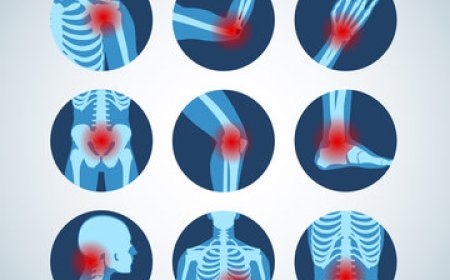Navigating Specialist Behaviour Support Services and Complex Care Needs under the NDIS
In recent years, the National Disability Insurance Scheme (NDIS) has transformed the way people with disabilities receive support across Australia. Central to its mission is the commitment to deliver personalised care that promotes independence, community participation, and dignity. Within this framework, two crucial components emerge: Specialist Behaviour Support Services and support for individuals with Complex Care Needs. These elements play a pivotal role in ensuring that people with higher needs and behavioural challenges receive appropriate, effective, and compassionate care.
Understanding Specialist Behaviour Support Services
Specialist Behaviour Support Services are an essential part of the NDIS for participants who display behaviours of concern. These behaviours may include aggression, self-injury, property damage, or actions that place the individual or others at risk. Behaviour support practitioners work in collaboration with the participant, their family, and support network to address the underlying causes of such behaviours and create positive, long-lasting change.
1. Person-Centred Assessment and Planning
A comprehensive behavioural assessment is the cornerstone of effective specialist behaviour support. This process involves:
-
Functional Behaviour Assessment (FBA): This identifies the triggers, patterns, and functions of a person's behaviour.
-
Individualised Planning: Strategies are tailored to the persons unique strengths, preferences, and environment.
-
Collaboration: The person with disability, their carers, allied health professionals, and support workers contribute to designing the Behaviour Support Plan (BSP).
These plans are evidence-based and aim not only to reduce behaviours of concern but to replace them with safer, more constructive behaviours.
2. Positive Behaviour Support (PBS)
Positive Behaviour Support is a proactive and therapeutic approach to behaviour management. Rather than punishing negative behaviours, PBS seeks to understand the persons needs and help them achieve the same outcomes through positive means. Key principles include:
-
Respecting dignity and rights
-
Promoting skill-building and emotional regulation
-
Creating supportive environments
PBS strategies may involve adjustments to communication styles, daily routines, or the physical environment to better support the individuals needs.
3. Restrictive Practices and Safeguards
In some high-risk situations, restrictive practices (such as physical restraint or environmental restrictions) may be temporarily used. However, under the NDIS framework, these practices are tightly regulated. Behaviour Support Practitioners must:
-
Develop plans that aim to reduce or eliminate the need for restrictive practices.
-
Ensure such strategies are only used as a last resort.
-
Monitor and report all restrictive interventions in line with NDIS Commission guidelines.
Specialist Behaviour Support Services not only aim to improve quality of life for the individual but also work to ensure their rights and freedoms are preserved.
Supporting Participants with Complex Care Needs under the NDIS
Complex Care Needs refer to individuals with multiple or severe physical, intellectual, psychological, or behavioural challenges. These participants often require coordinated support from multiple disciplines and 24/7 assistance. The NDIS has provisions in place to address these needs through a combination of health, personal, and behavioural supports.
1. Multidisciplinary and Coordinated Care
For participants with complex care needs, one of the most vital elements is the integration of services from different providers and healthcare professionals. This includes:
-
Medical Care: Regular monitoring and management of health conditions, such as epilepsy, diabetes, or respiratory issues.
-
Allied Health Support: Services like physiotherapy, occupational therapy, and speech pathology.
-
Mental Health Services: Psychological or psychiatric care where dual diagnoses (e.g., intellectual disability and mental illness) are present.
Case managers or support coordinators often facilitate communication between all stakeholders to ensure seamless and consistent care delivery.
2. High-Intensity Daily Personal Activities
Participants who need assistance with high-intensity daily personal activitiessuch as tube feeding, ventilator care, catheter management, or behavioural crisis interventionare supported through appropriately skilled workers. The NDIS funds:
-
Training for carers and support staff to manage complex medical or behavioural tasks.
-
Regular supervision and assessment to ensure safety and effectiveness.
-
Emergency planning and crisis response mechanisms to handle urgent or unexpected situations.
The goal is to maintain health and wellbeing while encouraging as much independence as possible.
3. Housing and Supported Independent Living (SIL)
People with complex care needs often require modified housing solutions or access to Supported Independent Living (SIL). NDIS may provide funding for:
-
Specialist Disability Accommodation (SDA): Homes designed for individuals with significant physical or functional impairments.
-
SIL Support: 24/7 support in a shared or individual living arrangement to help with cooking, cleaning, hygiene, and other daily tasks.
This structured living environment ensures individuals can live with dignity and autonomy while still having access to the care they need.
Bridging Behaviour Support and Complex Care
Often, Specialist Behaviour Support and Complex Care Needs are interrelated. For example, a participant with a neurological condition may also exhibit aggressive behaviours due to pain or communication barriers. Addressing both behavioural and physical health needs simultaneously is essential for holistic care.
1. Unified Support Plans
A comprehensive support plan that integrates behavioural, medical, and psychological strategies ensures consistency in care. It includes:
-
Risk assessments
-
Incident response protocols
-
Communication guidelines for support workers
Such integrated plans reduce misunderstandings and promote continuity in service delivery.
2. Staff Training and Competency
Workers supporting individuals with complex needs and behaviours of concern must be highly trained. The NDIS ensures providers deliver ongoing training in:
-
Positive behaviour strategies
-
De-escalation techniques
-
First aid and emergency medical support
-
Disability awareness and cultural sensitivity
Well-trained staff are more equipped to handle challenges confidently and compassionately.
3. Family and Carer Involvement
Families and informal carers are vital contributors to the success of both behaviour support and complex care plans. They offer insight into the persons history, preferences, and emotional responses. The NDIS encourages:
-
Regular consultations with carers
-
Respite services to support family wellbeing
-
Empowerment through education and involvement in decision-making
Respecting and including carers leads to more sustainable and person-centred outcomes.
Outcomes and Benefits of Specialist Behaviour Support and Complex Care
The combination of behavioural support and complex care under the NDIS brings several life-enhancing benefits to participants:
1. Improved Quality of Life
By addressing challenging behaviours and providing appropriate medical and personal support, participants can:
-
Experience greater comfort and reduced distress.
-
Engage in community activities.
-
Pursue education, employment, and hobbies.
2. Enhanced Safety
Support plans are designed to minimise risk to the individual, their carers, and the community. This includes:
-
Reduced frequency and severity of behavioural incidents.
-
Better health monitoring and timely interventions.
-
Crisis prevention and de-escalation strategies.
3. Greater Independence and Empowerment
One of the overarching goals of the NDIS is to empower individuals to lead fulfilling lives. Through structured behavioural programs and high-quality care:
-
Participants learn new skills and communication techniques.
-
They gain confidence in navigating daily life.
-
They enjoy more control over their routines and choices.
Final Thoughts
Specialist Behaviour Support Services and provisions for Complex Care Needs NDIS are indispensable elements of the NDIS. They offer a safety net and a pathway to a more empowered life for individuals with high and diverse needs. When these supports are tailored to the person, implemented with care, and constantly reviewed, they create an environment where dignity, independence, and human rights flourish.
By acknowledging the complex interplay of medical, psychological, behavioural, and environmental factors, the NDIS ensures that no one is left behindno matter how complex their support needs may be.
















![Top 9 Real Estate Mobile App Developers in Riyadh, Saudi Arabia [2025 Edition]](https://www.biphoo.uk/uploads/images/202507/image_430x256_6879d0d524335.jpg)





















